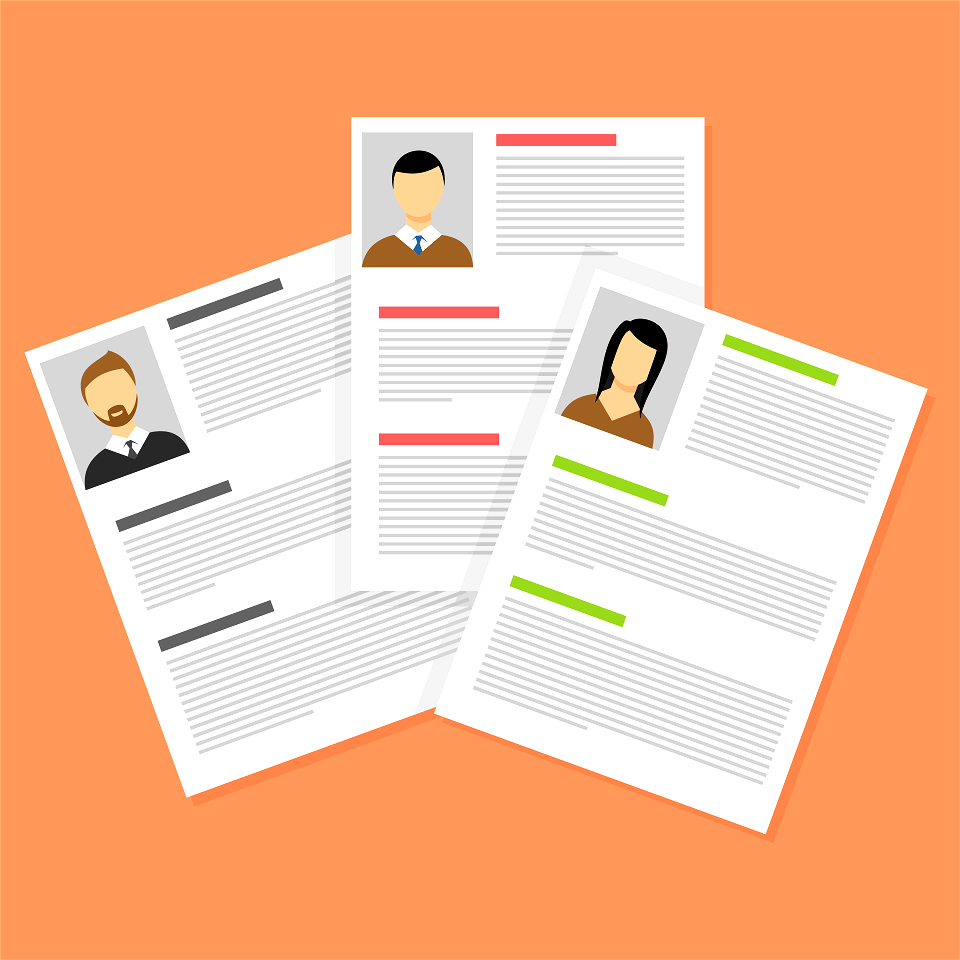Creating a good CV (Curriculum Vitae) is important because it is often the first impression that a hiring manager or recruiter has of you. A well-written and organized CV can help to showcase your skills and experiences and demonstrate why you are a good fit for the job. On the other hand, a poorly written or disorganized CV can make it difficult for the reader to understand your qualifications and may decrease your chances of being considered for the role. Here are some tips and tricks for writing a perfect CV (Curriculum Vitae) or resume:
Keep it concise
It is important to keep your CV or resume concise because hiring managers and recruiters typically have a large number of applications to review, and they may not have the time to read through long, detailed CVs or resumes. A CV or resume that is too long may also be difficult to read and may not effectively highlight your most relevant skills and experiences. Aiming for a length of 1-2 pages allows you to provide enough information to showcase your qualifications without overwhelming the reader.
To keep your CV or resume concise, focus on including only the most relevant information and eliminating any unnecessary details. Use bullet points and headings to make it easy for the reader to quickly scan through your document and identify the most important information. You should also be selective about which experiences and skills you include, focusing on those that are most relevant to the job you are applying for and eliminating those that are less important.
Use a clear, easy-to-read font and format
Using a clear, easy-to-read font and format is important because it helps make your CV or resume more visually appealing and easier for the reader to understand. A font that is too small or difficult to read can make your document hard to understand and may discourage the reader from continuing to read. On the other hand, a font that is easy to read and well-formatted will make your CV or resume more attractive and easier to read.
Some good fonts to consider using for your CV or resume include Calibri, Arial, and Times New Roman. These fonts are generally easy to read and widely available, so they are a good choice for most documents. You should also consider using a font size of at least 11 points to ensure that your document is easy to read.
Using headings and bullet points can also help make your CV or resume easier to read and scan. Headings can help the reader quickly understand the main sections of your document, and bullet points can help break up large blocks of text and make it easier to scan through the document.
In addition to using a clear, easy-to-read font and format, you should also consider using a consistent layout and design throughout your CV or resume. This can help make your document look more professional and visually appealing.
Use keywords
Using keywords in your CV or resume can help make it more likely to be noticed by applicant tracking systems (ATS) and recruiters. ATS are software programs that are used by many employers to help filter and organize job applications. These systems often use keywords to identify relevant candidates, so including relevant keywords in your CV or resume can help increase the chances that it will be noticed by the ATS.
Keywords can include specific skills or experiences from the job description, as well as industry-specific terms or acronyms. For example, if you are applying for a job as a software developer, you might include keywords such as “Java,” “Agile,” and “Scrum.”
It is important to use keywords appropriately and not stuff your CV or resume with too many irrelevant keywords. This may actually decrease the chances that ATS or recruiters notices your document. Instead, focus on using a few key relevant keywords that accurately describe your skills and experiences.
Customize your CV or resume for each job
It is important to customize your CV or resume for each job. Because it shows the employer that you are a good fit for the specific role you are applying for. When you tailor your CV or resume to the specific job, you can highlight the skills and experiences that are most relevant to that role and demonstrate how you can contribute to the company.
To customize your CV or resume for each job, you should carefully review the job description and requirements and identify the skills and experiences that are most important for the role. Then, you can highlight these skills and experiences in your CV or resume by using specific examples and emphasizing their relevance to the job.
For example, if the job requires specific software skills, you might include a section in your CV or resume that specifically highlights your experience with those software programs. If the job requires strong communication skills, you might include examples of times when you effectively communicated ideas or worked on a team.
Customizing your CV or resume for each job can take more time, but it is worth the effort because it can help increase your chances of being selected for an interview and ultimately getting the job.
Include your contact information: Make sure to include your full name, current address, phone number, and email address at the top of your CV or resume.
Start with a strong summary: Begin your CV or resume with a summary of your skills and experiences that highlights your most relevant qualifications for the job.

Use action verbs
Using action verbs in your CV or resume can help make your document more dynamic and engaging. Action verbs describe the actions you took in a particular role, and they can help to demonstrate your skills and achievements in a more powerful and effective way.
Some examples of strong action verbs that you can use in your CV or resume include:
- Developed: Used to describe a new idea, program, or product that you created or helped create
- Managed: Used to describe a team or project that you were responsible for overseeing
- Implemented: Used to describe a new process or system that you introduced or put into place
- Increased: Used to describe an improvement or increase in performance, such as increasing sales or improving efficiency
By using action verbs to describe your responsibilities and achievements, you can help make your CV or resume more dynamic and highlight the specific actions you took in your previous roles. This can help the reader better understand your skills and experiences and make your document more impactful.
Proofread
Proofreading your CV or resume is an important step in the writing process because it helps to ensure that your document is free of errors and typos. Having errors or typos in your CV or resume can be a red flag to employers, as it can suggest a lack of attention to detail or carelessness.
To proofread your CV or resume effectively, you should read through it carefully and look for any mistakes or errors in spelling, grammar, or punctuation. You should also check for any formatting errors, such as inconsistent margins or fonts.
One way to proofread your CV or resume is to read it out loud, as this can help you catch mistakes that you might not notice when reading silently. You can also ask a friend or family member to review your document and point out any errors they notice.
Taking the time to proofread your CV or resume can be well worth the effort. It can help to ensure that your document is as strong and professional as possible and increase your chances that employers notices you.
Use examples
Using specific examples in your CV or resume can be a powerful way to illustrate your skills and experiences and help the reader understand the value you can bring to the company. By providing concrete examples of your work, you can help the reader better understand your capabilities and achievements.
For example, instead of simply listing a skill or experience, you might describe a specific project or challenge you completed that demonstrates your expertise in that area. For example, instead of just listing “project management,” you might say “Successfully managed a team of 10 to complete a project on time and under budget, resulting in a 15% increase in efficiency.” This gives the reader a more detailed understanding of your skills and achievements.
Using specific examples can help to make your CV or resume more engaging and impactful, and it can also help to differentiate you from other candidates who may have similar skills or experiences. By providing specific examples of your work, you can help the reader understand how you can contribute to the company and make a positive impact.
Keep it up to date
It is important to keep your CV or resume up to date by regularly adding new skills and experiences as you gain them. As you progress in your career, you will likely acquire new skills and experiences that can make you more competitive in the job market. By regularly updating your CV or resume to reflect these new skills and experiences, you can ensure that it accurately reflects your current qualifications.
To keep your CV or resume up to date, you should regularly review it to identify any new skills or experiences that you have gained. You should also review the job descriptions of the types of positions you are interested in and make sure that your CV or resume includes the skills and experiences that are most relevant to those roles.
In addition to adding new skills and experiences, you should also make sure to remove any outdated or irrelevant information from your CV or resume. This can help to keep your document focused and relevant, and make it more effective in showcasing your qualifications.
By regularly updating your CV or resume, you can ensure that it accurately reflects your current skills and experiences and increase your chances that employers consider you for new job opportunities.
Summary
It is important to create a good CV or resume because it is often the first impression a hiring manager or recruiter has of you and it can showcase your skills and experiences. Some tips for creating a perfect CV or resume include keeping it concise, using a clear, easy-to-read font and format, using keywords, customizing it for each job, using action verbs and specific examples, proofreading, and keeping it up to date. By following these tips, you can create a strong and effective CV or resume that will help you stand out to potential employers.
Some more useful links: https://zety.com/blog/how-to-write-a-cv
